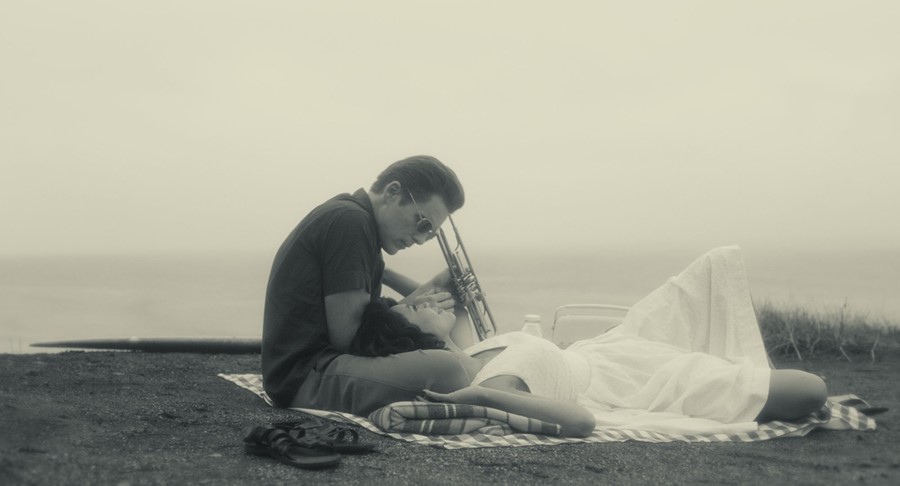As new Chet Baker biopic Born to be Blue hits UK screens, we sit down with the actor to discuss his improvisational embodiment of the jazz legend, as well as the pitfalls of early success
The biopic has frequently fallen prey to formula in recent years, with many films depicting the lives of their extraordinary protagonists – be they scientific prodigies or troubled musicians – with surprisingly mundane convention. Which is why, upon settling into your seat to catch the latest biographical endeavour, you could be forgiven for feeling pre-emptively weary. In the case of Born to be Blue however – a filmic depiction of brilliant and self-destructive jazz musician Chet Baker, played by a pitch-perfect Ethan Hawke – the traditional tropes are thrust aside in a movie that mirrors Baker's lilting riffs in its lyrical and spontaneous form.
Written and directed by Robert Budreau, the film takes as its starting point a real moment in Baker's later career, when producer Dino de Laurentiis visited the musician in an Italian prison, where he was being held on drug convictions, to ask him to star as himself in a forthcoming movie. This film was, in fact, never realised but Budreau's script imagines that it was, weaving together moments of fiction and historical fact to draw a heady portrait of Baker and the struggles and triumphs he faced during the 1960s and 70s – spanning his battle with drug addiction, the fight that cost him his front teeth, forcing him to re-learn how play the trumpet, and an all-consuming love affair with strongwilled beauty Jane (a mesmerising Carmen Ejogo). Born to be Blue strikes a resonant chord, at times life-affirming, at others heartbreaking, but always intoxicatingly Romantic with a capital R. Here, on the day of the feature's UK release, we sit down with Hawke to discuss Baker's enduring appeal and the pitfalls of early success.
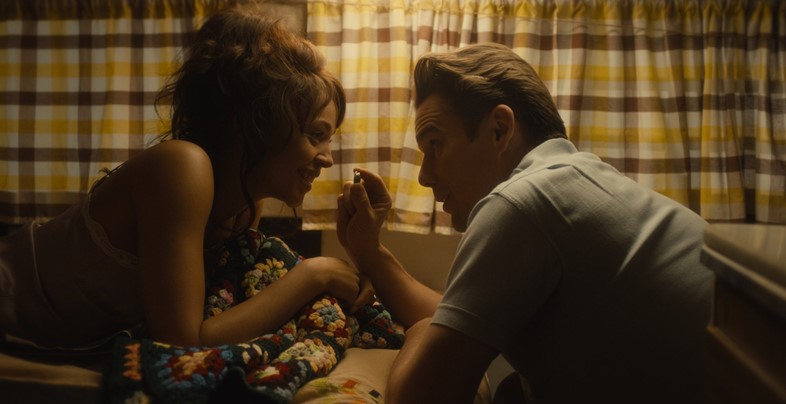
On discovering Chet Baker...
"I probably first heard his name when I watched Bruce Weber's documentary Let’s Get Lost in high school. And then I remember while we were writing Before Sunrise, Rick and Julia and I used to listen to Chet Baker and that’s when I got to know his music really well. And then later, Rick and I tried to make a movie about Chet Baker and that opportunity never fully materialised and so I felt really lucky when this script for Chet in his 40s came around."
On Baker's enduring appeal...
"Once you really imagine yourself playing a part, it’s like an itch. I always found myself thinking about it, whenever I would listen to Chet. He is such an enigmatic figure, and there’s something so deeply mysterious about him that I felt really drawn to [playing him]. For those of us that enjoy being melancholic, he’s kind of our patron saint."
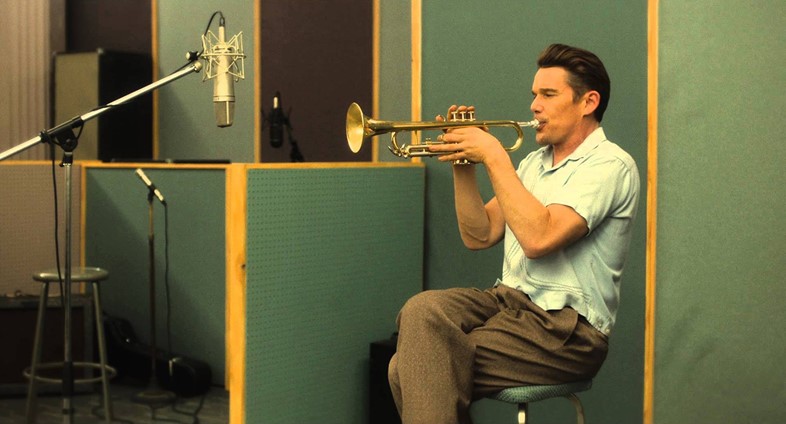
On riffing on Baker's character rather than imitating him...
"I knew that there was a need to tip my hat to the iconography of Chet Baker. You know, we live in such a funny time where you can go online right now and Google the real person and see [what they were like] but I felt that what was more important was to make something original; to make a work of art that would have something personal about it, and something to say about right now. In a lot of ways, I thought the best version of movie would be the one that came into your mind if you closed your eyes and lay down on your floor and listened to a whole Chet Baker record. There's such a profound romanticism to his music; it’s so full of the spontaneity and melody of jazz and yet it’s always powerfully melancholic, so I thought that the movie should be like that – it should feel like the music – and the script gave us an opportunity to do that."
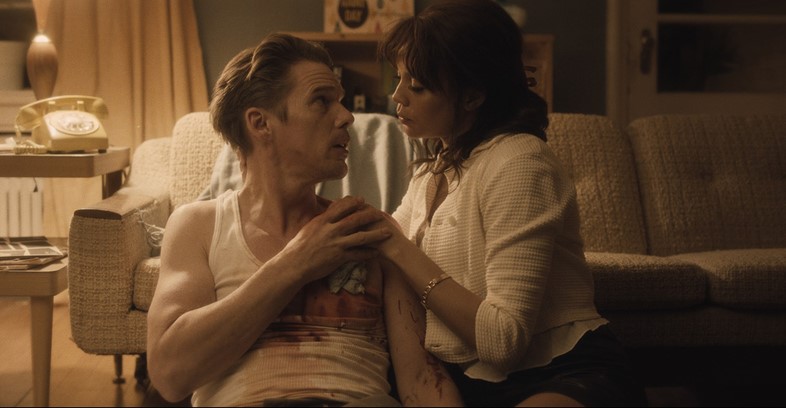
On his favourite thing about Baker...
"The constant thing I would hear about him – reading about him, talking to people that played with him and things – was how funny he was. I always feel like you can really understand somebody if you can understand their sense of humour. You know, there’s such a coolness to all those photographs and this detached quality that we associate with him, and I thought it was kind of unexpected and interesting to try to discover his sense of humour.
There’s a great story I read that I found really silly. He was playing in Reykjavik so he had to fly in and the cops were sure that he was going to have heroin on him, so he had to wait in the customs area for eight hours or something. He wasn’t nervous because he didn’t have any drugs on him – they were already at the hotel – so he just told jokes and sang songs for the customs officers for hours. He sang old show tunes and everything, and I just thought that was really a person I would like to meet!"
On the biggest challenge he faced while filming...
"For me, emotionally, I understood this person. The challenge was the singing and the playing! I tried to learn the trumpet enough to get away with it and tried to learn how to sing well enough to get away with it. And that was very hard – to do those things well enough not to get in the way of the story, not break the spell."
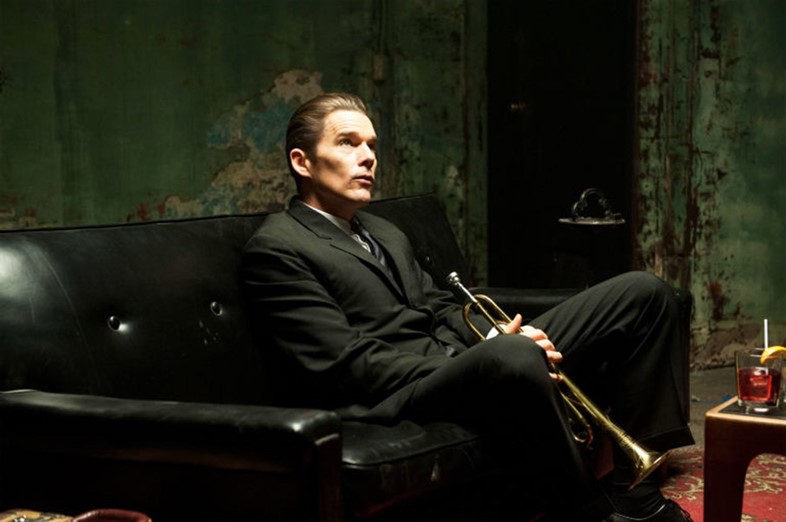
On finding a connection between himself and Baker...
"For me, my whole life, whether it was Boyhood or The Training Day or The Before Trilogy, I've wanted to chart as blurred a line as possible between character and actor – you want to find yourself inside people, you know? We all think that our experiences in life are so unique, but in truth most of the time, our collective, shared experiences are far greater than what separates us. I just try to bring myself into everything I do, I think that that’s a way of personalising it – it’s the only way I know how to do it.
One of the things I really understood about Chet was the strange difficulties that come along with tremendous early success. It presents certain challenges, when, right out of the gate, you get handed your dreams because it can leave you with nowhere to go but down. When Chet Baker first auditioned for Charlie Parker, doing the West Coast tour with one of the inventors of be-bop, I mean there was nowhere higher to climb for him. And in a lot of ways I understood that – with Dead Poets Society and some of the early success that I had. It makes the normal trajectory of slowly building your work and slowly getting better difficult, and it can make ordinary temperatures feel cold, so to speak."
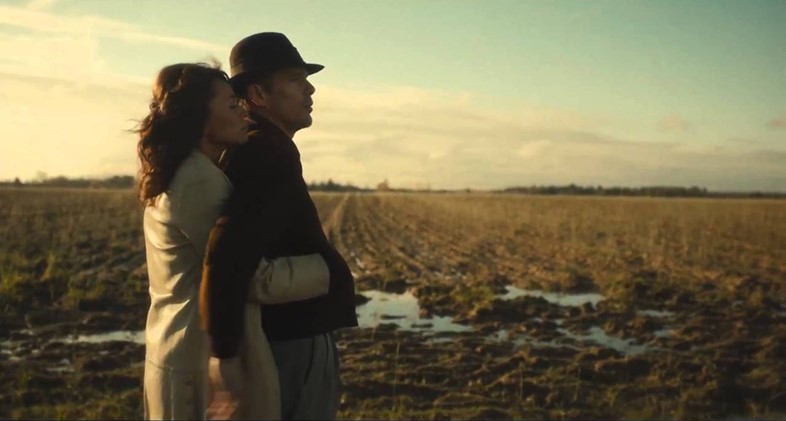
On his favourite biopic performance by another actor...
"That’s a good question – I liked Bound for Glory, with David Carradine, about Woody Guthrie. I also loved Lady Sings the Blues, Diana Ross as Billie Holiday, that’s kind of incredible. And I also thought about 8 Mile a lot with this movie, because our movie opens with the idea of Chet Baker playing himself, in his life story, and I started to think about how really truly strange that must have been for Eminem. It’s really quite a unique and strange thing to do."
On who he'd like to play him a biopic of his life...
"God! Umm… Chet Baker? I've had such a boring life that nobody will ever make a film out of it."
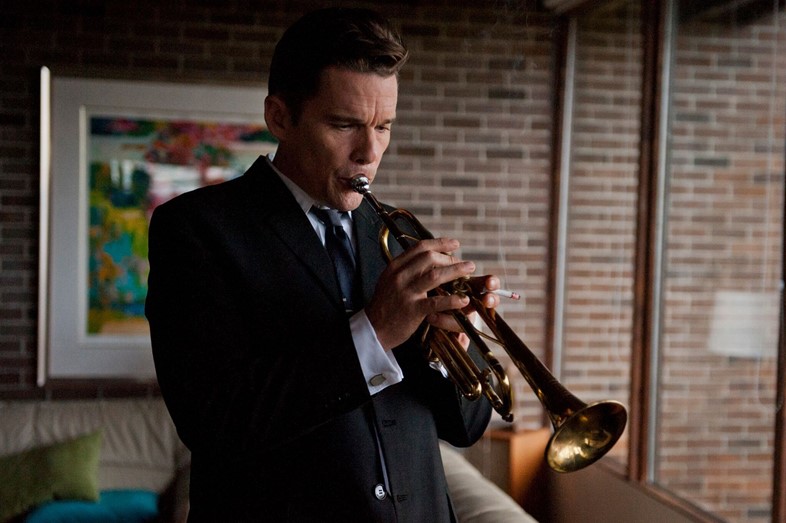
On the historical era he'd most like to visit...
"I’m really interested in the 20s. I always get drawn to that period of art and the way the world was changing so much. I would love to see that period. But to be honest I’d love to go back to any time period – if I had a time machine, I would use it non-stop."
On what drives him creatively...
"My favourite thing to do is to be in a room with talented people – that’s what I’m really chasing. I don’t have some kind of arbitrary idea for roles, I just always try to seek out something that I haven’t done before and to put myself in a situation that makes me feel nervous because it’s exciting. I’ve got this graphic novel coming out, and that was one of the most fun things I’ve ever done – getting to work with this graphic artist Greg Ruth and to be with a totally different kind of artist than I’ve ever been with before. It was the same with working on Born to Be Blue and getting to work on the music, and when I did the Tom Stoppard play and got to be in the rehearsal room with Tom Stoppard. That kind of new experience is so thrilling!"
Born to be Blue is in cinemas nationwide from today.
